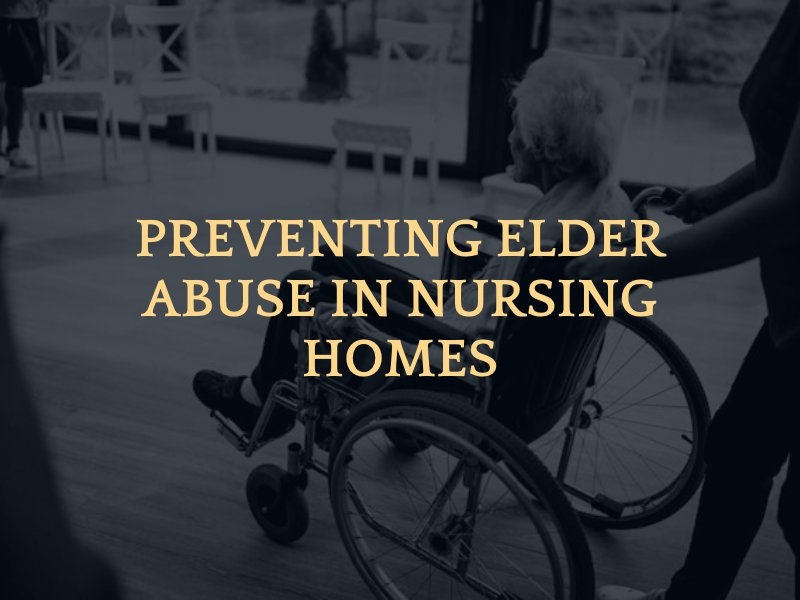
We place an elderly family member in a nursing home because we value their safety, their needs exceed the family’s ability to provide care, and we want to ensure the protection of their lives, comfort, and human dignity. Sadly, despite their glossy ads, many nursing homes allow the vulnerable elderly residents in their care to experience abuse. Elder abuse in nursing homes includes physical, emotional, sexual, or financial abuse as well as cases of egregious neglect. There are around five million reported cases of nursing home abuse each year, and experts believe that cases are widely underreported.
Recognizing the Signs of Nursing Home Elder Abuse
Nursing home abuse cases are underreported due to the inability of many nursing home residents to tell family members about the abuse. This may be because of the common physical and cognitive issues related to aging, or due to feelings of shame or embarrassment. Sadly, some signs of abuse are similar to the normal signs of aging, making them easy to miss. The first step to preventing elder abuse in nursing homes is to recognize the signs of abuse such as the following:
- Unexplained injuries or a sudden increase in injuries such as fractures, bruises, lacerations, and head injuries
- Broken or missing personal items like glasses, dentures, and hearing aids
- Sudden weight loss
- Signs of dehydration such as dry skin and lips
- Torn clothing
- Untreated or infected bed sores
- Poor hygiene
- Dirty bed linens
- Unclean living spaces
- Signs of restraint use
- Uneaten meals remaining in the room
- Bleeding or bruising around private parts
- Emotional withdrawal
- Signs of anxiety or depression
- Unwillingness to speak in front of caregivers or staff
- Unexplained financial transactions
If a nursing home resident displays any of these signs and symptoms of nursing home neglect and abuse, a family member should immediately report their concerns to staff administrators and have a medical professional unaffiliated with the facility perform a complete medical evaluation of the resident.
Be Aware of the Risk Factors of Elder Abuse
Elderly women face twice the risk of abuse in nursing homes compared to male residents. Residents with cognitive decline or dementia also face increased risk. Some studies show that victims of previous abuse, mistreatment, or past trauma are more likely to become victims in nursing homes and less likely to report the abuse. Other risk factors for abuse in nursing homes include understaffing, frequent employee turnover rates, and inadequate hiring practices and training protocols.
Taking Proactive Steps to Prevent Elder Abuse
When placing an elderly loved one into a nursing home, it’s critical to determine if the facility’s caregiver-to-resident ratio is adequate. Speak to your local nursing home ombudsman to determine whether or not there have been previous complaints of abuse in the home. Read online reviews of the home and research to find any records of lawsuits or criminal complaints before placing your loved one in the facility. Once a beloved family member is in a nursing home facility, it’s important to make frequent visits to monitor conditions while visiting with the loved one, asking frankly about their quality of care.
By remaining alert to the risk factors and signs of nursing home abuse, family members can minimize the risk to their elderly loved ones.
How can a Nursing Home Abuse Lawyer Help?
If your loved one experienced abuse in a nursing home, we are ready to give them a voice for justice through financial accountability. Call the Phoenix nursing home abuse attorneys at Knapp & Roberts today so we can take prompt action on your loved one’s behalf.
